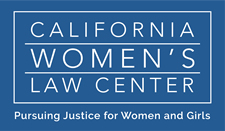-
- Of all sexually active women, 99% will use a method of birth control at some point.
- One in four women will have an abortion in her lifetime; most of these women are mothers.
- More than four million people rely on our nation’s family planning program (Title X) for their health care.
- Marginalized women face multiple oppressions and Reproductive Justice recognizes the intersectional issues impacting women’s lives. Environmental factors, neighborhood safety, and racial biases in health care systems all affect women’s ability to plan and raise healthy families.
- Reproductive Justice recognizes that women of color and marginalized communities often have difficulty accessing essential services, including contraception, prenatal care, domestic violence assistance, adequate wages, and safe homes.
- While keeping abortion legal is important, Reproductive Justice recognizes that “choice” does not exist when access is limited. Many women of color cannot afford care or travel hundreds of miles to the nearest provider.
Women’s Health
Access to health care is fundamental to a woman's ability to lead a healthy, autonomous life. CWLC works to protect laws that ensure women have the legal right to make personal health care decisions, and we advocate for policies that expand access to abortion, breastfeeding, and family planning services.
Every woman should have access to accurate, unbiased health care and information regardless of age, race, sexual orientation, geographic location, or income level. Unfortunately, many women struggle to get the care they need, and reproductive rights are continually under attack. CWLC is committed to safeguarding women’s health, focusing on reproductive health care access and reproductive justice partnerships.
REPRODUCTIVE HEALTH CARE ACCESS (see related resources)
Women have unique health care needs throughout their lives, especially during their reproductive years. Everyone deserves the ability to make the reproductive choices that are best for them. Access to birth control and safe, legal abortion is critical for women to be able to lead healthy lives and make family planning decisions. CWLC protects these legal rights by filing amicus briefs in federal court to oppose harmful policy proposals, supporting providers with legal guidance for handling anti-abortion protesters, conducting research on crisis pregnancy centers, and hosting trainings to keep attorneys up-to-date on rapidly changing national policies and regulations.
CONSIDER THIS
REPRODUCTIVE RIGHTS AND JUSTICE PARTNERSHIPS (see related resources)

Reproductive Justice combines reproductive rights and social justice. The term originated and has been championed by women of color. SisterSong, a leading voice in this space, defines Reproductive Justice as the human right to maintain personal bodily autonomy, have children, not have children, and parent the children we have in safe and sustainable communities. CWLC is a member the Reproductive Justice Coalition of Los Angeles, a diverse coalition of more than twenty grassroots advocacy organizations focused on this work. CWLC also partners with The Alliance, a national collaborative formed to strengthen our collective capacity to advance women’s rights, Reproductive Justice, and LGBTQ equality by using policy at the state level. We are committed to advancing policy in the short-term, testing new approaches with potential for longer-term impact, and recognizing the intersectional issues impacting reproductive justice.
CONSIDER THIS

